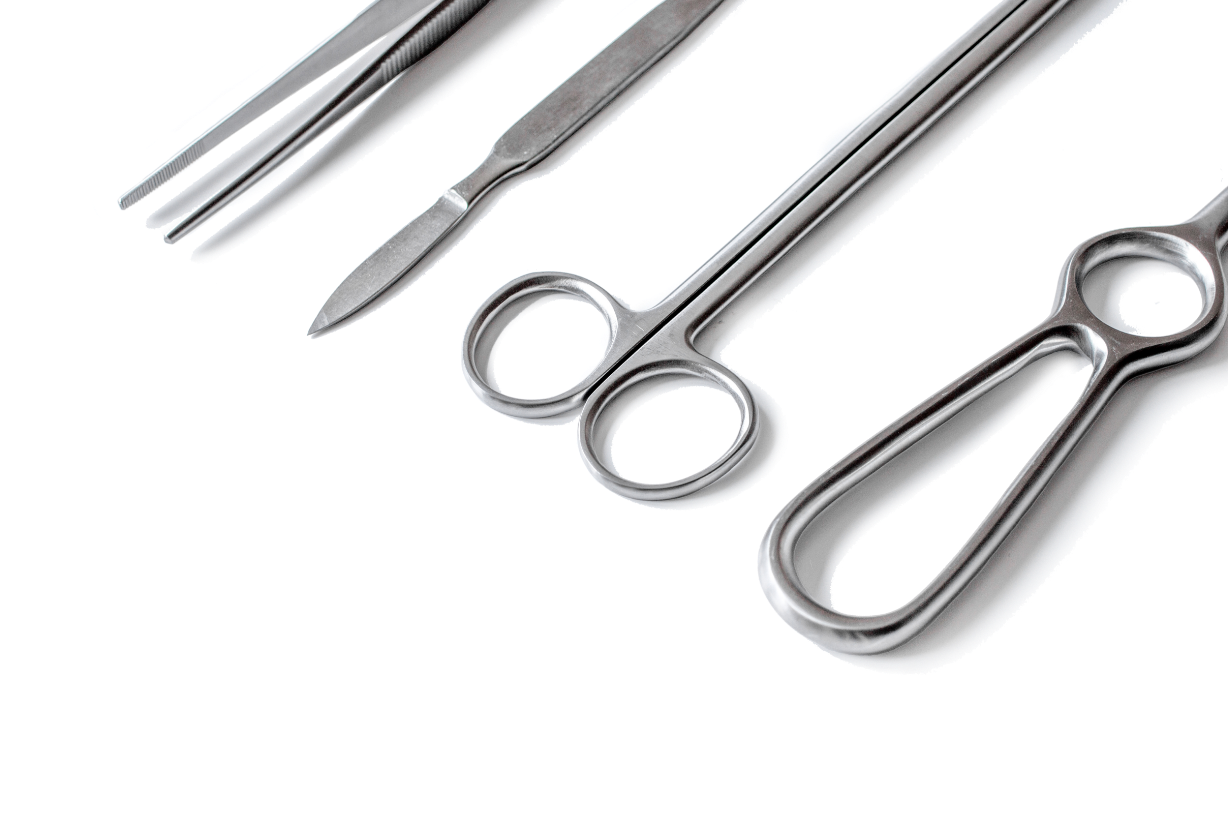What Is Facial Trauma?
Injuries to the face impart a high degree of emotional and physical trauma to patients. The ability to treat these injuries require special training involving hands-on experience only available in an oral and maxillofacial surgery residency.
Our surgeons have extensive training in treating these injuries utilizing modern techniques. We are on staff at local hospitals and deliver emergency room coverage for facial injuries including facial lacerations, oral lacerations, avulsed (knocked out) teeth, and facial bone fractures (nose, cheek, eye socket and jaws).
Soft tissue injuries to the maxillofacial region
When soft tissue injuries such as lacerations occur on the face, they are repaired by suturing. In addition to the obvious concern of providing a repair that yields the best cosmetic result possible, care is taken to inspect for and treat injuries to structures such as facial nerves, salivary glands and salivary ducts (or outflow channels). Our surgeons have significant experience at diagnosis and are proficient at treating all types of facial lacerations.
Bone injuries to the maxillofacial skeleton
Fractures to facial bones are treated in a similar fashion to many other bones in the body. When an arm or leg is broken, the orthopedic doctor places a cast on the limb. However, unlike an arm or a leg, a cast cannot be placed on the face which means other techniques must be used to stabilize facial fractures.
Treatment of these injuries can be accomplished in a thorough and predictable manner. Most importantly, the facial appearance should be minimally affected. An attempt at accessing the facial bones through the fewest incisions necessary is always made. If skin incisions are necessary, our surgeons will take care to keep them small and in places to minimize or hide the resulting scar.
After-Care
General Anesthesia/Intervenous Sedation
Following General Anesthesia or Intervenous Sedation, you are considered impaired for 24 hours. Do not operate a motor vehicle or make important decisions during this time frame. We recommend no consumption of alcohol or drugs during this period, or while taking the prescribed medications.
The more frequent you rinse with salt water, the better
Following surgery, some pain is normal and expected. Take the prescription pain medication as you feel necessary, not exceeding the daily maximum dose. Over-the-counter Tylenol or Advil can be just as helpful. Your surgeon will discuss this with you.
A small amount of bleeding is normal after the surgery. Your surgeon will discuss with you whether stitches were used during the procedure. Non-dissolving stitches will be removed at a follow-up 10-14d post-surgery when we assess healing. If dissolving sutures (stitches) were placed, they will typically fall out after 4-7 days.
Smoking
Smoking should be avoided for at least 7 days post operatively. It is the primary cause of delayed wound healing and infection.
Brushing Teeth
Brushing your teeth is critical post-operatively to minimize pain and infection. Brush at least after every meal for 7 days. The cleaner you keep your mouth, the more comfortable you will be. You may use a small baby toothbrush with soft bristles and either warm water or toothpaste. Keep the brush on the teeth. If you bump into one of the dissolving sutures (stitches) you will not do any harm.
Mouth Wash
You will be prescribed a medicated oral rinse (chlorhexidine 0.12%) that you will begin to use 24 hours post-operatively. Do not use products such as Scope or Listerine. Warm salt water may be used in replacement of the chlorhexidine (1/4 teaspoon of salt dissolved in 250ml of warm water). The most frequent you rinse with salt water, the better.
Swelling
Swelling is completely normal and expected. It will peak 2-5 days post operatively then begin to subside. This may extend under the chin and down the neck. Ice packs are helpful on the cheek (20 minutes on, 20 minutes off) on the first postoperative day. Warm packs will be beneficial starting on day 2 post surgery.
Pain
Following jaw surgery, some pain is normal and expected. Take the prescription pain medication as you feel necessary, not exceeding the daily maximum dose. Over the counter Tylenol or Advil can be just as helpful. Dr. Scherle will discuss this with you.
Bleeding
A small amount of bleeding is normal after the surgery. You will have dissolving sutures (stitches) along the gum line that will fall out after 5-7 days.
Diet
Cold fluids are recommended for the first 2-3 days. Smoothies, protein shakes, ice cream or yogurt are good options. You may then progress your diet as you are comfortable. Food that is easily cut with a fork (fish, pasta, eggs) may be trialed, eventually working your way back to a normal diet as quickly as you are comfortable. Let your knife and fork do the chewing for you. Lots of small bites will make any meal manageable.
Bruising
Bruising may occur post operatively and can extend from the face, beneath the chin and onto the chest/breast. This is normal and should not cause alarm. It will resolve within 7-10 days.
Follow-Up
Please call the office should you experience any postoperative issues or have any questions. We will schedule a follow up visit at your convenience.



